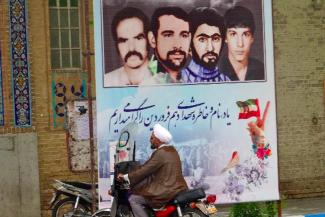Editorial
Concern for victims

European nations established world-spanning empires at the same time as their philosophers were proposing enlightenment. To the imperialists, whose rule was repressive, every non-European culture was uncivilised. They designed government agencies to serve their interests, rather than the people governed. According to the principle of divide and rule, “natives” were pitted against one another. Christian missionaries, moreover, often were part of the governance system. In such settings, Islam gave oppressed people a sense of identity. The faith inspired hope for morally acceptable leadership as opposed to the evident cynicism of the current rulers.
In Egypt, the Muslim Brothers emerged almost 90 years ago. Their idea of religion included a political, anti-imperialist statement. Similar trends were evident in South Asia for both Islam (see Maryam Khan in D+C/E+Z 2015/05, p. 26 ff.) and Hinduism. The party of Narendra Modi, India’s prime minister, is rooted in the Sangh Parivar, a group of Hindu-chauvinist organisations, that spawned a similar mix of religious and anti-colonial sentiments. Faith-based agitation retains a sense of anti-imperialism, not only in India, but it is increasingly inspired by identity issues, still pitting some kind of “us” against some kind of “them”. In a bizarre twist, the mutual animosity that haunts Pakistan and India is rooted in anti-colonial attitudes. Animosity between Shia und Sunni Muslims is even older. These facts do not make violent identity-politics acceptable, but they help to understand regional dynamics.
Depressingly, faith-coded fanaticism can still exploit wide-spread frustration with corrupt and dysfunctional governments. The terrorists claim to be protecting the faith and the faithful. It is a huge problem that they do so with some legitimacy in the eyes of some local people who suffer grievances that range from political discrimination and governmental marginalisation all the way through to civil war and military repression. At the same time, the clear-cut ideology of good versus bad attracts alienated, frustrated and deeply confused youth internationally.
Responding to Islamist terrorims only with stringent policing and military repression will not work since that approach reinforces the Islamist narrative of “us” against “them”. Hearts and minds must be won, as became evident after the misguided US-led intervention in Iraq in 2003.
Western governments are not proving strong in this context. They must not feed any kind of Islamophobia, but inform their citizens that the vast majority of victims of Islamist terror are Muslims. Welcoming and supporting refugees from the world regions haunted by terrorist violence would win many hearts and minds. Moreover, the west needs more distance from its Islamist allies, such as Saudi Arabia (see Loay Mudhoon, D+C/E+Z 2014/11, p. 427 ff.). Today, terrorists are inspired just as much by resentment of Saudi Arabia’s cynical monarchy as by the same regime’s fundamentalist Sunni doctrines, which missionaries and supposedly charitable donors have been spreading for decades from the Atlantic to the Pacific Ocean.
Hans Dembowski is editor in chief of D+C Development and Cooperation / E+Z Entwicklung und Zusammenarbeit.
euz.editor@fs-medien.de













